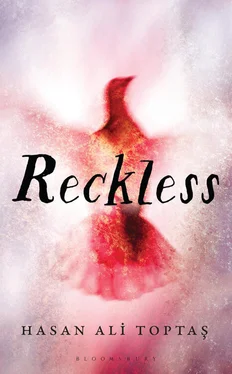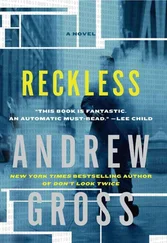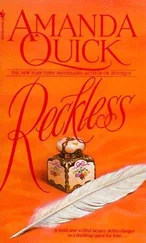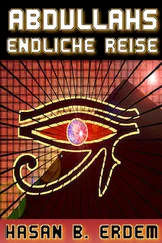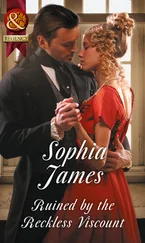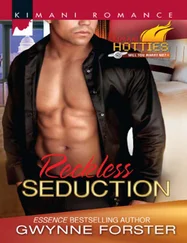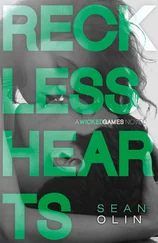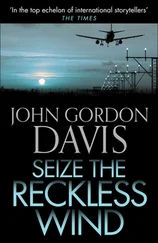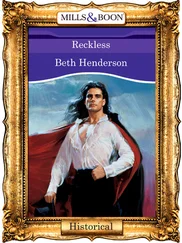‘Did they really celebrate that here?’ Ziya asked.
‘Why are you so surprised?’ Resul asked. ‘The man claimed two heads, so of course he would.’
Ziya’s head began to spin. There was a roar in his ears as he looked at Resul as if seeing him for the first time.
‘The drink’s gone to your head, I think,’ said Resul. ‘I can see it on your face.’
Ziya looked down and swallowed.
‘Give me some more of this poison,’ he said, pushing his glass across the table. ‘For God’s sake, give me more!’
Resul filled the glass.
‘Capflyer came that night, too,’ he said, picking up where he’d left off. ‘They’d set up a table right over there, under the flagpole. The soldiers had all gone out to their stations, of course. The only other ones here were Yusuf the cook, and the night watchman, and me. I knew what was going to happen, so I made myself scarce. Yusuf the cook was waiting on the table, so no such luck for him, of course. The poor man spent the night shuttling back and forth between the flagpole and the kitchen. And that was why he was doomed to capture our friend Capflyer’s attention, after he’d knocked down enough drinks to relax. His head swimming with rakı , he took his gun out of his holster, and said, Come over here and stand in front of me, and then he ordered him to raise his visor. Yusuf had no choice but to do as he was told. He backed up until he was a good distance away, but Capflyer wasn’t able to fire. What I mean is, he kept raising his gun and closing one eye as if he was going to fire, but he never followed through. Sometimes he even sucked in his breath, and when he was ready to pull the trigger, he cried out, “Bammm!” And there was Yusuf standing there, dying and coming back to life again, dying and coming back to life, and in the end he shat himself. The men at the table slapped each other on the backs and fell about laughing, just to see him like that. So that’s what kind of man he is, this Capflyer. It’s always the same joke, and one day, I fear, he’ll take aim to send someone’s cap flying, and shoot some poor bugger in the temple. You have to be on guard at all times, if you ask me. You downed that second glass pretty fast, didn’t you?’
‘I did,’ said Ziya, in a little yellow voice that stank of cologne.
After which Ziya got up without saying goodbye and when he reached the corridor, he took the internal stairs up to the top of the building. There was no one left by the well at the back of the mud-brick houses; there was only the shadow of the well’s wooden crank, and it was as smooth as a new puddle. After Ziya had stared for a long time at that shadow and the houses’ darkened doors, he went to the edge of the roof and gently sat himself down on the nobbled black concrete. And then for a time he thought about Hayati of Acıpayam, killed in that skirmish at Seyrantepe Station. And he even thought of the two men in black shalwar trousers, lying near his friend’s lifeless body, on the other side of the barbed-wire fence, surrounded by empty shells, and suddenly he could not hold himself back any longer. He began to cry. Then Resul came over and took him by the arm and led him to his office downstairs. He asked him why he was crying, but Ziya had no time to give an answer. Because just then, the jeep that had gone shooting off to Ceylanpınar came limping back. The commander went hurrying into the building, and as he opened his door, he called sternly out to Ziya, ordering him to come at once.
Wiping away his tears, Ziya hurried down.
When he had entered the room and saluted, he saw that the commander was seated at the front desk, looking at the pile of letters before him. He looked as if he was struggling to hold in some sort of anger or grievance, something he had clung to, long after he should have let it die away. There was a hardness in his face. Something was eating him. Then he picked up one of the letters and swung it back and forth. ‘Who’s this Midhat Çınar?’ he asked Ziya.
‘Ali Çınar’s son, sir,’ Ziya replied.
‘Ali the Snowman’s son?’
‘Yes, sir.’
Screwing up his face, he threw the letter across the desk as if it were dirtying his fingers. And then he said, ‘Take it.’ In a mocking voice, he added, ‘This Midhat Efendi has written you a letter.’
Ziya went over to the desk and picked up the letter.
‘Give these other letters to the driver,’ said the commander, pushing them across the desk with the back of his hand. ‘Tell him to deliver them to the appropriate stations.’
Ziya picked up those letters.
The commander frowned at him sternly.
‘Why do you stink of cologne?’ he asked.
‘I have a toothache, sir,’ Ziya replied. ‘I’ve dipped it in cologne to kill the pain.’
‘That’s enough!’ said the commander, jumping to his feet as if to strike him. ‘Get out!’
Shocked by the reprimand, Ziya got out and went back to his office and, wanting to know what had made the commander so angry, he at once opened his letter. Or rather, he reached into the envelope that had already been opened and pulled out the letter, which had been folded twice. What he saw first was the photograph in the fold. It had been cut from a newspaper, and it was a picture of Midhat from the waist up, arms crossed and smiling happily. Next to his picture was an advertisement for a film called Hope , and it showed Yılmaz Güney in the role of Cabbar the Carriage Driver, staring into the lens with his family; his hands were on his eldest son’s naked shoulders, and he standing there, straight as a rod, frowning stonily at Ziya from underneath his bushy eyebrows, with a face so angry and mournful that it made a nonsense of Midhat’s smile. Then Ziya looked at the little black-eared dog who seemed to be the eighth member of the family, sitting there on the lap of his youngest son. In the first lines of the letter, Midhat confirmed that the revolutionary struggle continued, and that he had finally secured permission to open a community centre, which he’d filled with books, and a week earlier they had brought a copy of the film Hope in from Aydın and shown it for free for three nights running. He went on to detail what he called his other revolutionary acts: setting up a reading group, setting up a drama club, writing ‘Long Live Socialism’ on the face of the fountain at the entrance to the town. He went on and on, recklessly piling on the detail, as if he did not know that all soldiers’ letters were censored. In the last lines of the letter, he told Ziya how much he was looking forward to seeing him again when he got out, to which he added a string of slogans in huge letters, followed by two and sometimes three exclamation marks, each one bolder than the last.
By the time he finished the letter, Ziya was beside himself. ‘Midhat, you dolt,’ he thought. ‘How could anyone be so naïve?’ He stood up and left the office, heading to the canteen for more of Resul’s brew. But it was almost as if the commander knew where he was going, for now he called him into his office.
‘Go to the depot and get yourself a rifle,’ he said, without looking him in the face. ‘From now on, you are coming out with me on night patrol!’
‘Yes, sir!’ said Ziya.
And so it was that, so many months later, he was armed once again, and issued with a cartridge belt, and every night he set out in the passenger seat of that jeep, like Capflyer’s clerk, to patrol the impenetrable darkness. Hours after the soldiers had gone to their stations, they would leave company headquarters, and all night long they would drive up and down the road that stretched along the barbed-wire fence, trembling like a strip of gauze. As they passed, the guards would scramble to their feet, their rifles slung over their shoulders, and salute. If there was anyone asleep inside, or smoking a cigarette, or if anyone had gone over to talk to his friends in a neighbouring trench, the commander would jump down from his jeep and beat him to a pulp. Sometimes the commander and the guard would be swallowed by the night but the air still rang with kicks and punches. When the scuffle ended, the commander would always appear in exactly the same place as he had vanished. Breathing heavily through his nose, he’d get back into the jeep, stretching out in the back seat and looking disgusted, and then he would turn to the driver, Ahmet of Polatlı, and bellow, ‘Start driving, you animal! What are you staring at?’ And Ahmet of Polatlı would start driving, his face darkened with anger, but saying nothing, and off they would go again, down the road. And if there was a skirmish at any point along the section of the border for which they were responsible, or an exchange of gunfire, or a tracer flying through the sky, they would head straight out to assist those guards, of course. Taking shelter behind the jeep, they would join in the shooting and stay at that post until morning.
Читать дальше
